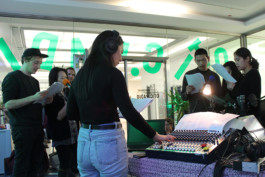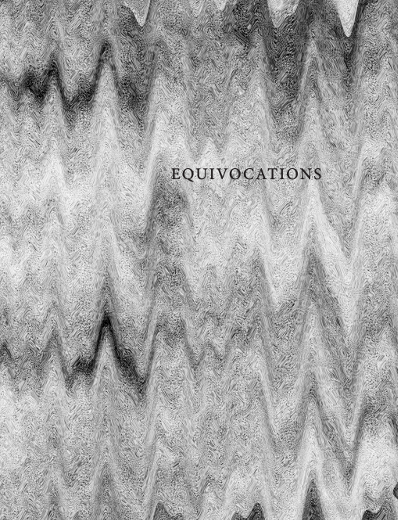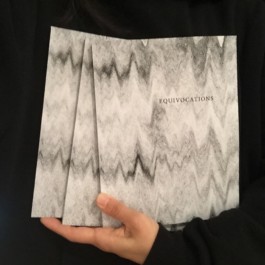
Korean Times tables | 2019
Vocal performance,10min.
What role do orality play in learning and the transmission of knowledge? How does the voice interfere and shape the socialization educational systems are responsible for. How do we individually and collectively construct, adjust, compromise, admit and reproduce knowledge through sound? “Knowledge is all stored in books, but it can become effective only when relegated to the voice.”[1] While sounding out the words, the voice carries on the information to our memory. This is especially effective when it is about learning abstract rules such as a times tables in mathematics. The recitation helps to learn by heart, but it inevitably creates also its own musical and rhythmical construction that seems to be independent of a general (and globally accepted) scientific validity.
When read aloud these rules and laws present an individual’s socialization through language, timbre, and style. This internal discrepancy is subject to the performative exploration in the work “Korean Times Tables” In a first part each performer creates within the recitation an individual rhythm and tempo. In the second part, the times tables were transformed into a score with musical notes with the help of an algorithm.
[1] Mladen Dolar, A voice and nothing more, Chapter 5. the politics of the voice, The mit press, Cambridge: Massachusetts, p.11.
The project is supported by Deutschlandfunk, Academy of media arts in Cologne, STUK.
Audio Excerpt
Korean time tables with vowels
Notes link: Korean times tables III, Note algorithm.


Book & Album Cover still
Book & Album image still, Photo by Hye young Shin
EQUIVOCATIONS
Book & CD Release, 2019, Germany.
With Andreas Niegl, Elisa Kühnl, Franziska Windisch, Hanna Noh, Hye Young Sin, Jiyun Park, Nils Hezogenrath, Paula Pedraza, Shabnam Azar, Sophia Bauer, Sybella and Dora Perry.